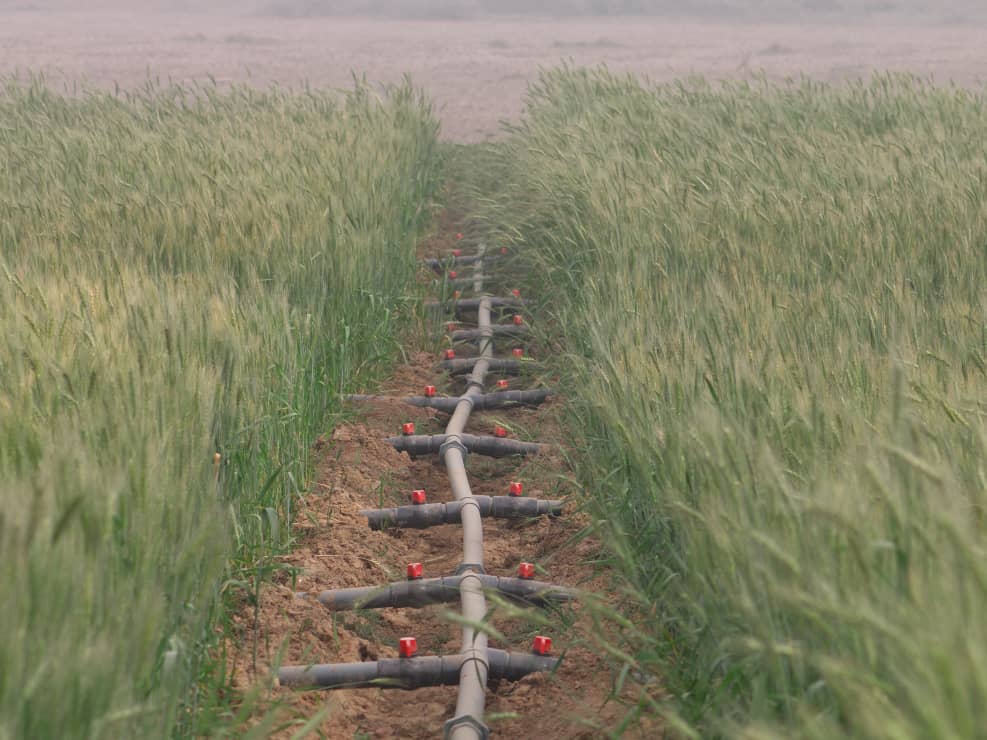The Institute for Agricultural Research (IAR), Ahmadu Bello University (ABU) Zaria, in collaboration with the International Water Management Institute (IWMI), under the Technologies for African Agricultural Transformation-Water Enabler Compact (TAAT-WEC) project, has introduced a modern irrigation technology for wheat farmers in Kano State.
Prof. Henry Igbadun, the TAAT-WEC Coordinator in Nigeria said during a field work at Alkamawa community in Bunkure Local Government Area of Kano State said that the project was sponsored by African Development Bank (AfDB).
Igbadun said that the introduction of the modern irrigation method was necessary to reduce the drudgery farmers go through in irrigating their fields and also reduce the cost of production.
According to him, the open conduit method of conveying water is not only tedious, but takes long time to irrigate the fields, more hours of running the irrigation pumps, high water conveyance losses and inundation of fields.
He said that the close conduit – pipe conveyance and distribution network technology is appropriate to overcome the challenges “because it saves time of irrigation, which in turn, reduces the amount of fuel used to power the centrifugal pumps.
“The technology also makes irrigation appealing to farmers and young ones. If all other inputs are used judiciously on the field, the technology has the potential to bring about increase in yields.”
The coordinator explained that the technology would also help wheat farmers to save the irrigation fields from deterioration, occasioned by field inundation or wild flooding.
On possible challenges, the professor said: “the obvious challenge in adopting this technology by small-scale farmers is the initial investment cost, particularly the cost of the conveyance pipes.
“When this technology is properly managed, the ease of use and reduction in drudgery, which are often not quantified and eventual increase in yield can offset the initial cost.”
He explained that the newly introduced wheat irrigation technology could also be applied in maize and sorghum farming.
According to Prof. Igbadun, the TAAT-WEC project activities involves out-scaling of proven tools, technological solutions and innovations in irrigation and agricultural water management to increase productivity and production of wheat, rice and sorghum in Nigeria.
He added that, “Additional demonstration of irrigation technologies for wheat production are on-going at Kadawa sector of the Kano River Irrigation Scheme.
And also, activities on rice and sorghum will also be taking place in Nasarawa and Jigawa State, respectively”.
The Chairman of Wheat Farmers Association in Alkamawa community, Alhaji Sabiu Abdullahi-Alkamawa, commended the institute and pledged to mobilise members to adopt the method.
He further called on wheat farmers in neighbouring communities to adopt the method for improved yield.

 Join Daily Trust WhatsApp Community For Quick Access To News and Happenings Around You.
Join Daily Trust WhatsApp Community For Quick Access To News and Happenings Around You.


